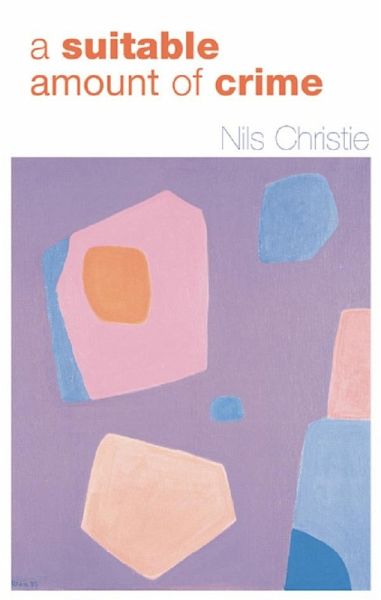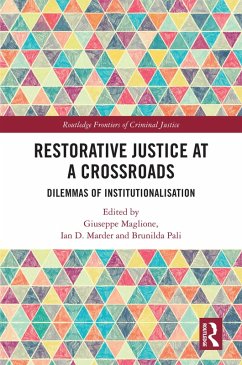
A Suitable Amount of Crime (eBook, ePUB)
Versandkostenfrei!
Sofort per Download lieferbar
39,95 €
inkl. MwSt.
Weitere Ausgaben:

PAYBACK Punkte
20 °P sammeln!
Crime and punishment are social and cultural manifestations; they are closely bound up with people's perceptions of morality, norms and values. In this book, Nils Christie argues that crime is a fluid and shallow concept - acts that could be construed as criminal are unlimited and crime is therefore in endless supply. It should not be forgotten that there are alternatives, both in the definition of crime, and in responses to it.A Suitable Amount of Crime looks at the great variations between countries over what are considered 'unwanted acts', how many are constructed as criminal and how many a...
Crime and punishment are social and cultural manifestations; they are closely bound up with people's perceptions of morality, norms and values. In this book, Nils Christie argues that crime is a fluid and shallow concept - acts that could be construed as criminal are unlimited and crime is therefore in endless supply. It should not be forgotten that there are alternatives, both in the definition of crime, and in responses to it.
A Suitable Amount of Crime looks at the great variations between countries over what are considered 'unwanted acts', how many are constructed as criminal and how many are punished. It explains the differences between eastern and western Europe, between the USA and the rest of the world. The author laments the size of prison populations in countries with large penal sectors, and asks whether the international community has a moral obligation to 'shame' states that are punitive in the extreme.
The book is written in an engaging and easily accessible style that will appeal to anyone interested in understanding contemporary problems of crime and punishment.
A Suitable Amount of Crime looks at the great variations between countries over what are considered 'unwanted acts', how many are constructed as criminal and how many are punished. It explains the differences between eastern and western Europe, between the USA and the rest of the world. The author laments the size of prison populations in countries with large penal sectors, and asks whether the international community has a moral obligation to 'shame' states that are punitive in the extreme.
The book is written in an engaging and easily accessible style that will appeal to anyone interested in understanding contemporary problems of crime and punishment.
Dieser Download kann aus rechtlichen Gründen nur mit Rechnungsadresse in A, B, BG, CY, CZ, D, DK, EW, E, FIN, F, GR, HR, H, IRL, I, LT, L, LR, M, NL, PL, P, R, S, SLO, SK ausgeliefert werden.













